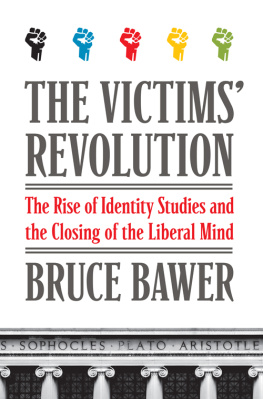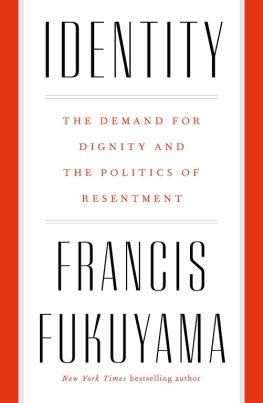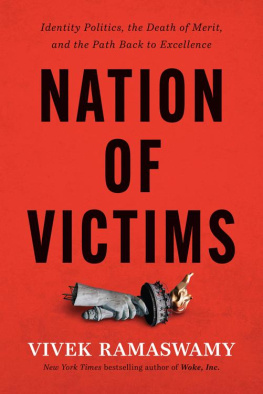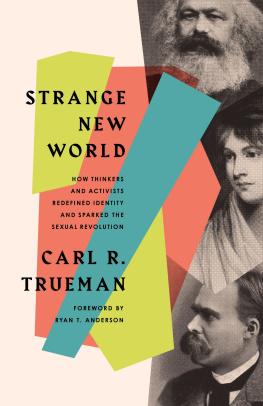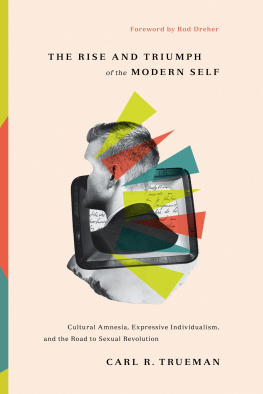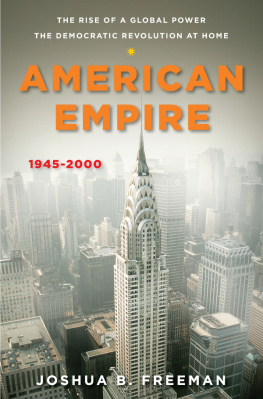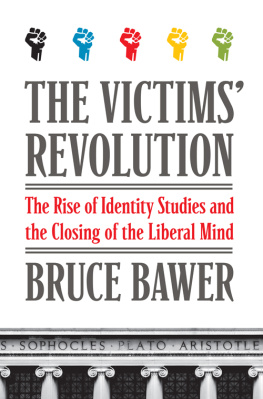Bawer - The victims revolution: the rise of identity studies and the closing of the liberal mind
Here you can read online Bawer - The victims revolution: the rise of identity studies and the closing of the liberal mind full text of the book (entire story) in english for free. Download pdf and epub, get meaning, cover and reviews about this ebook. year: 2014;2012, publisher: HarperCollins;Broadside e-Books, genre: Art. Description of the work, (preface) as well as reviews are available. Best literature library LitArk.com created for fans of good reading and offers a wide selection of genres:
Romance novel
Science fiction
Adventure
Detective
Science
History
Home and family
Prose
Art
Politics
Computer
Non-fiction
Religion
Business
Children
Humor
Choose a favorite category and find really read worthwhile books. Enjoy immersion in the world of imagination, feel the emotions of the characters or learn something new for yourself, make an fascinating discovery.
The victims revolution: the rise of identity studies and the closing of the liberal mind: summary, description and annotation
We offer to read an annotation, description, summary or preface (depends on what the author of the book "The victims revolution: the rise of identity studies and the closing of the liberal mind" wrote himself). If you haven't found the necessary information about the book — write in the comments, we will try to find it.
Bawer: author's other books
Who wrote The victims revolution: the rise of identity studies and the closing of the liberal mind? Find out the surname, the name of the author of the book and a list of all author's works by series.
The victims revolution: the rise of identity studies and the closing of the liberal mind — read online for free the complete book (whole text) full work
Below is the text of the book, divided by pages. System saving the place of the last page read, allows you to conveniently read the book "The victims revolution: the rise of identity studies and the closing of the liberal mind" online for free, without having to search again every time where you left off. Put a bookmark, and you can go to the page where you finished reading at any time.
Font size:
Interval:
Bookmark:

The Victims Revolution
The Rise of Identity Studies and the Closing of the Liberal Mind
Bruce Bawer

For Carol
Contents
The Closing of the Liberal Mind
The Victims Revolution
Gilligans Island: Womens Studies
The Ebony Tower: Black Studies
Visit to a Queer Planet: Queer Studies
The Dream of Aztln: Chicano Studies
Studies, Studies Everywhere
Is There Hope?
The Closing of the Liberal Mind
I t is my sense that most Americans today, whether they call themselves conservatives, liberals, or moderates, realize that something exceedingly important in the fabric of American society has been imperiled by the developments of the last few decades. They deplore the degradation of our culture, the polarization of our politics, and the coarsening of public debate. They understand that somewhere along the way, we lost the sensible centrism that, within living memory, defined the American public square. They understand that American history, which until not very long ago was a remarkable account of gradual progress toward the full realization of the nations founding values, has taken a wrong turn. But while Americans lament the loss of shared national values, many of them may not recognize the intimate connection between this loss and the changes that have taken place in American higher education over the last generation or sochanges, specifically, in the teaching of the humanities and social sciences, that have eventuated in the rejection, indeed the demonization, of the very ideas that once defined the sensible center.
What is it that holds a nation together? asked Arthur Schlesinger Jr., the celebrated liberal historian, in a new 1998 foreword to his 1991 book, The Disuniting of America . He proceeded to reflect on the fragility of national cohesion, serving up a long list of countries that were then (and still are) in ethnic or religious turmoil. Even Canada, long... considered the most sensible and placid of nations, faced the possibility of splitting in two because of tensions between its English- and French-speaking citizens. Schlesinger quoted author Michael Ignatieff on the Canadian question: If one of the top five developed nations on earth cant make a federal, multi-ethnic state work, who else can?
As Schlesinger observed, [t]he answer to that increasingly vital question has been, at least until recently, the United States. For two centuries, America accomplished something that would have previously seemed impossible: the creation, as Schlesinger put it, of a brand-new national identity by individuals who, in forsaking old loyalties and joining to make new lives, melted away ethnic differences. Hector St. John de Crvecoeur, author of Letters from an American Farmer (1782), described Americans as a new race of mena race that, paradoxically, had nothing to do with race.
To point out the miraculous nature of this accomplishmentits utter lack of precedent in all of human historyis not to deny, among other things, the mistreatment of Native Americans and the blight of slavery and racism. It is simply to note that, in a world where violent intergroup enmity and conflict have been the rule rather than the exception, America found a way for increasingly diverse groups of people to live together not only in peace but with a strong sense of shared identityan identity founded not on ethnicity but on a commitment to the values of individual liberty, dignity, and equality articulated in the Declaration of Independence and the Constitution. America, as envisioned by its founders and understood by the overwhelming majority of its citizens, was, in an international context, and in a now outdated sense of the word, a supremely liberal conception.
In 1944 the Swedish writer Gunnar Myrdal marveled at the fact that Americans of every ethnicity, religion, and color shared a more explicitly expressed system of general ideals than the people of any other country in the Western world. Although American society had yet to live up to the full meaning of its creedthat all men are created equal, that they are endowed by their Creator with certain unalienable Rights, that among these are Life, Liberty and the pursuit of Happinessit was in fact the very thing that made moral progress in America not only possible but inevitable. To quote Schlesinger again: the Creed held out hope even for those most brutally excluded by the white majority and act[ed] as the spur forever goading white Americans to live up to their proclaimed principles.... America, Myrdal said, is continuously struggling for its soul.
One of the most magnificent examples of Americas struggles for its soul was the civil rights movement of the mid-twentieth century. The goal of that movement could not have been more consistent with Americas founding idealswhich was why it ultimately succeeded. But that bright success was not without its downside. The most disastrous by-product of the civil rights movement was multiculturalism, a philosophy that teaches, as Schlesinger put it, that America is not a nation of individuals at all but a nation of groups. For two centuries, Americans had been held together by a shared sense of national identity, a belief in individual liberty, and a vision of full equalityeven though that vision, as many Americans acknowledged, had yet to be fully realized. Yet just when the complete attainment of that vision seemed to lie within our grasp, the very idea of a shared identity began to be challenged, condemned, dismantledand replaced by a new conception, founded not on individual rights and liberties but on the claims of group identity and culture. This new ideology, as Schlesinger recognized, represented a betrayal of true liberalism, a rejection of the idea of a sensible center, and a profound danger to the sense of unity that had made America uniquely strong, prosperous, and free.
Schlesinger was, it should be emphasized, an icon among liberals, a two-time winner of the Pulitzer Prize and the author of books that had helped shape social and political thought at the height of the American Century. The great chronicler and defender of Democratic presidents, in particular Franklin D. Roosevelt, he was also the author of an influential 1949 treatise called The Vital Center , in which he argued for a strong and vigorous democratic liberalism as an alternative to the then formidable temptations of communism. The Disuniting of America came as a kind of dismal coda to that book. It was published at a time when American campuses were in an uproar over the rise of multiculturalism and identity studies, and in it he warned his fellow liberals that the looming cult of victimhood, while posing as a liberal crusade, was actually an anti-liberal virus that threatened to destroy the very foundations of American democracy.
Schlesinger himself might not have put it this way, but what the new academic groupthink really represented was nothing less than the closing of the liberal mind. Armed with a new sense of mission and moral superiority, the new academic elites simultaneously balkanized and politicized the study of society and culture and wrapped their Gramscian Marxist critiques in an impenetrable jargon that only they could understand. They no longer listened to traditional liberals and held conservatives in utter contempt. Meanwhile, the multicultural dogma spread throughout society, transforming the way people think, speak, and act on a wide range of issues.
In previous books, I have examined some of the consequences of this phenomenon. While Europe Slept indicted the refusal of liberals in Europe and the U.S. to defend liberal principles in the face of Islamic radicalism. Surrender documented the abandonment of their commitment to free speech in the name of multicultural sensitivity. In this book, I have attempted to go to the root of the problemthe academy, the font of the perfidious multicultural idea and the setting in which it is implanted into the minds of American youth.
Font size:
Interval:
Bookmark:
Similar books «The victims revolution: the rise of identity studies and the closing of the liberal mind»
Look at similar books to The victims revolution: the rise of identity studies and the closing of the liberal mind. We have selected literature similar in name and meaning in the hope of providing readers with more options to find new, interesting, not yet read works.
Discussion, reviews of the book The victims revolution: the rise of identity studies and the closing of the liberal mind and just readers' own opinions. Leave your comments, write what you think about the work, its meaning or the main characters. Specify what exactly you liked and what you didn't like, and why you think so.

